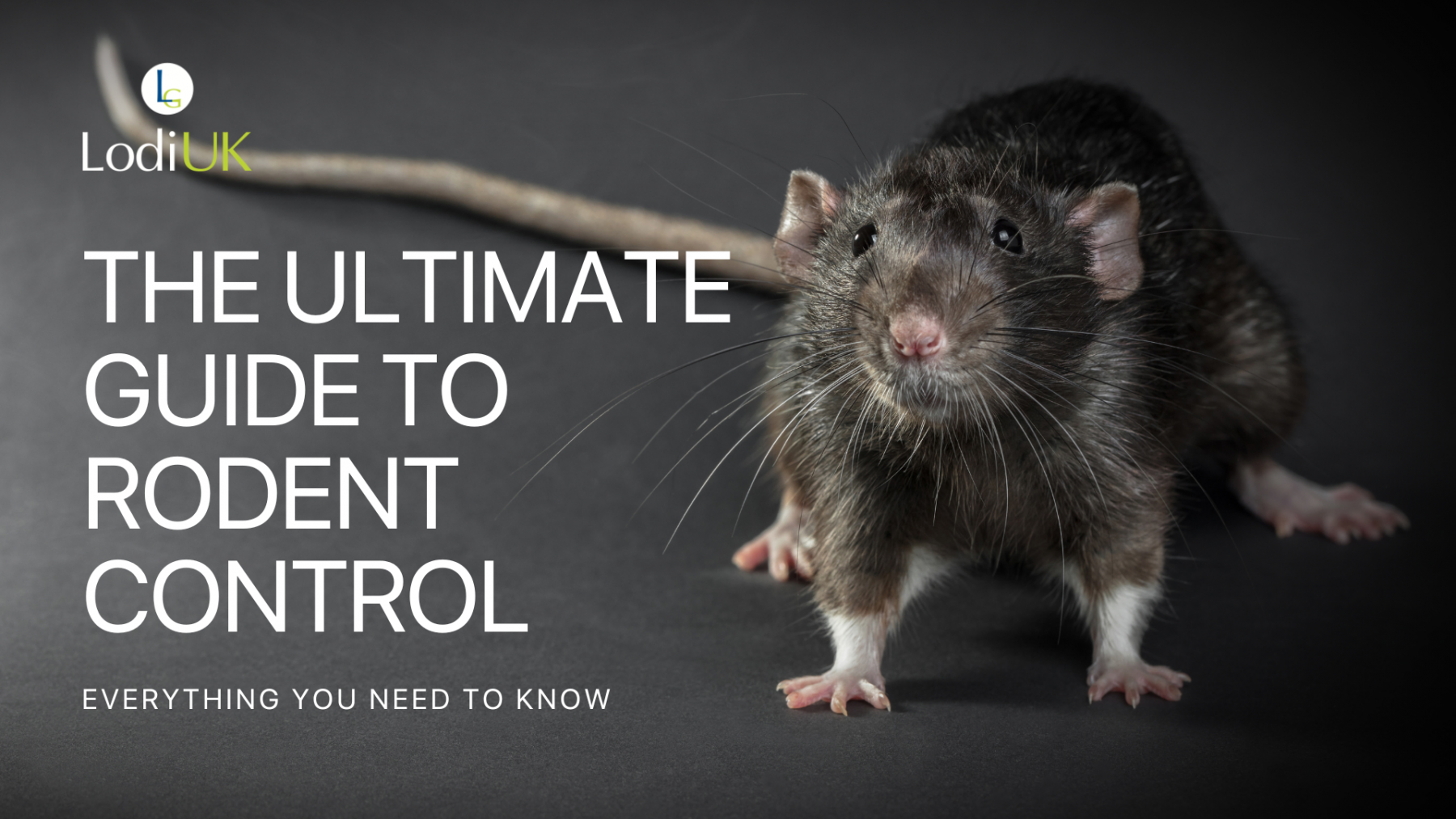
Rodents, particularly rats and mice, can pose a significant threat to homes, farms, and businesses. Not only are they notorious for causing structural damage and contaminating food sources, but they also carry diseases that can harm both humans and animals. Managing rodent infestations efficiently is crucial, especially during the colder months when rodent activity heightens.
Spotting Rodent Activity: The Early Signs
Before you can control a rodent infestation, you first need to spot it. Rodents are generally nocturnal, and secretive by nature, which means that by the time you see one scurrying across, you might already have a significant and serious infestation. However, there are key signs that can help you detect their presence early.
1. Droppings: One of the most common indicators of a rodent problem is droppings. Mouse droppings are small and pointed at the ends, while rat droppings are larger and resemble a raisin shape. Droppings are often found in discreet places like cupboards & corners, along rat rodent runs and pathways such as walls, or near food sources. When it comes to Mouse toilet habits, they urinate frequently, so you may smell a strong ammonia odour or see urine pillars (small mounds of up to 4cm high and 1cm wide). So keep your eyes open!
2. Gnaw Marks: Rodents are the only mammals with teeth that never stop growing. Gnawing is an important natural behaviour by which rodents maintain their dental health, constantly chewing on things to prevent their teeth from overgrowing. Look out for bite marks on baseboards, food packaging, furniture, or most commonly wiring.
Our Technical Pest Advisor Dave Reece says “Not only does chewing through electrical components affect machinery and vehicles, it can also lead to more devastating outcomes such as fires.”
3. Nesting Materials: Rodents will collect soft materials like shredded paper, cardboard, fabric, and insulation to build their nests. If you find small piles or remnants of these materials in places such as walls, lofts, under floorboards or hidden corners, it could indicate a nearby nest.
4. Footprints and Tail Marks: In dusty, dirty or muddy areas, rodents leave footprints and tail marks. Swish or swoosh marks are also visible around water sources and in food such as rice or grain. Top Tip - Sprinkling a thin layer of flour or talcum powder along suspected rodent pathways can help you detect fresh tracks.
Dave Reece adds “Rats need around 12ml of liquid per 100g of body weight each day meaning they tend to drink two to three times a day, so looking for footprints in areas near and around water sources will provide an indication that there is a rodent problem.”
Understanding Rodent Season: When Are Rodents Most Active?
Rodent activity follows a seasonal pattern, peaking during the colder months when they seek refuge indoors. Known as rodent season, this period generally lasts from October to March, with activity peaking from late autumn through winter.
Rodent Calendar - What Happens During Rodent Season?
- October - November: The Search for Shelter: As temperatures begin to drop, rodents start moving indoors to seek shelter from the cold. They are particularly drawn to warm, dry environments with plentiful access to food and water (especially for rats!)
- December - January: Nesting and Reproduction: Once they’ve settled indoors, rodents begin nesting and reproducing. With an abundant food supply, populations can grow rapidly, especially if left unchecked. A single mouse can produce 6 to 10 litters per year, and rats can have up to 1,250 pups within a year, meaning a small issue can become an infestation very quickly! A group of rats is called a mischief, in the wild rats live in large colonies where they work together to forage for food, build nests and protect their territories.
- February - March: Continued Infestation: As the cold months persist, rodent activity remains high. Though some rodents may venture back outside as the weather warms up, many will stay put if they’ve established a comfortable nest indoors.
Understanding the timing of rodent season can help you take preventative measures early, reducing the likelihood of a serious infestation.
How to Use Lodi UK's Rodenticides: The Professional Approach
Lodi UK offers a one-stop-shop for rodent control, expertise and in-house technical advice. A comprehensive range of professional rodenticides and amateur baits, designed to target rodents swiftly and effectively. Best practice choosing the right products for your unique situation, infestation type and using products in the right way, you can eliminate rodents both safely and efficiently.
Key Lodi UK Professional Rodenticides:
- Lodi’s Gems: No.1 supplier of professional use rodenticides. Lodi are the only UK manufacturer to offer three families of active ingredients. A choice of baits in single-feed & multi-feed formulations, offering an armoury of true alternatives for all year-round rodent control. Leading the way in sustainable pest control solutions with responsible recycling and colour by the bucketload. Your favourite rodent control range has been given a new look. Our 100% recycled bait buckets decreases Lodi UK’s plastic consumption by over 57%, that's baiting made better!
- Harmonix Rodent Paste: Forming part of the Lodi’s Gems range, Harmonix® Rodent Paste is a highly effective ready-to-use non-anticoagulant rodenticide for the control of rodents. Twice the speed, using half the bait compared to traditional rodenticides. Proven control within 7 days with 50% less bait and no known resistance. Providing an innovative and flexible solution to rodent problems, which left untreated can lead to disease, property damage, fire risk, and costly repairs. You can explore this innovative product in more detail here.
Key Lodi UK Amateur Baits:
- Racan Force Paste: Known for its superior palatability and fast-acting formula, Racan Force Paste is ideal for users who need a reliable solution for tough rodent infestations.
- Racan Dife Paste: Featuring difenacoum, Racan Dife Paste is another fantastic option for rodent control, offering a balance between potency and safety. This product is designed to be effective while reducing the risk to non-target species.
- Racan Grain Bait: A powerful grain-based rodenticide that offers flexibility and ease of use in different environments. It’s particularly useful in agricultural or rural settings, where you may need a versatile solution that works effectively in various conditions.
For the full range of Lodi UK rodenticides, visit our Rodent Control Product Page.
Top Tips for Responsible Rodent Control
Using rodenticides isn’t just about baiting and hoping for the best. To achieve results while minimising risks to pets and wildlife, it’s essential to follow best practices. If you would like to find out more about our baiting top tips check out our blog here.
1. Strategic Placement: Rodents tend to move along walls and stick to familiar routes. Place bait stations along these pathways, especially near areas where you’ve noticed droppings, gnaw marks, or nesting materials.
2. Use Bait Stations: Always follow the product label for guidance. It is recommended to place rodenticides inside covered and locked bait stations to protect pets, children, and non-target wildlife from accidental ingestion. Lodi UK offers various tamper-proof bait stations to ensure safe application.
3. Protect yourself: When handling chemicals, gloves are a must. Rodents also have an acute sense of smell and may be wary of anything that carries human scent. Wearing gloves when handling bait helps prevent rodents from detecting your scent.
4. Monitor and Replenish: Regularly monitor and check bait stations to see if the bait has been disturbed, taken or consumed. Replace or replenish bait as necessary and with the label guidance and continue monitoring until all signs of rodent activity have disappeared. If in doubt always seek advice from a professional pest controller.
5. Rotate Baits: Rodents can sometimes become resistant or wary to certain types of bait. To avoid this, it’s wise to rotate between different rodenticide types. Lodi UK offers a variety of formulations (paste, grain and block), as well as anticoagulant and non-anticoagulant alternatives to help with this.
6. Follow Product Instructions: Always read the instructions on the product label, be aware of warnings and adhere to the recommended dosage, application methods, and safety precautions. This ensures you’re using the rodenticide effectively and responsibly.
Prevention During Rodent Season: Stay Steps Ahead of the Infestation
Rodent season presents an increased risk of rat and mouse infestation, but with the right steps, you can reduce the chances of rodents entering your property in the first place.
Seal Entry Points: Rodents can squeeze through tiny gaps. So, we suggest inspecting your property for cracks, gaps & holes, particularly around pipes and doors, and seal these entry points to keep rodents out.
Store Food Properly: Rodents are attracted to easily accessible food sources. Store food in airtight containers and ensure that bins are tightly sealed. This makes your property less appealing to hungry rodents.
Keep Your Outdoor Environment Tidy: Remove piles of debris, excess vegetation, or unnecessary clutter that could serve as hiding spots or potential nesting areas for rodents.
Regularly Inspect for Signs of Rodent Activity: Throughout rodent season, keep an eye out for any early signs of rodent activity - droppings, chew marks, footprints, tail marks, pathways or even listen out for unusual sounds. The earlier you detect a problem, the easier it will be to manage.
Conclusion
Rodent infestations can escalate rapidly and quickly get out of control. Knowing how to spot early signs of rodent activity, understanding the timing of rodent season, and using the right rodenticides for your situation will give you the upper hand in managing these pests. Remember to always follow best practices when using baits to ensure safety and effectiveness.
For more detailed guidance on rodent control and Lodi UK's products, check out our resources below:
Taking a proactive approach during rodent season is key to keeping your home, farm, or business rodent-free.
RELATED DOWNLOADS








